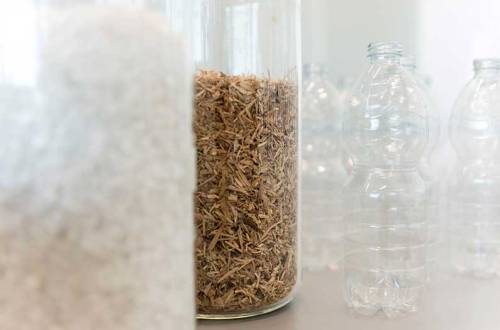#single-use plastics
Canberra bans single-use plastics as laws pass ACT Assembly
Laws banning single-use plastics in Canberra have passed the ACT Legislative Assembly, and businesses could be fined up to $40,000 if they breach them. Under the ban, plastic cutlery, drink-stirrers and polystyrene cups will be outlawed in the territory from July 1 this year.
Post link

The UK is dumping our waste on other countries
Well over half of the household plastic packaging the government claims is recycled is sent abroad, most of it going to countries with very low recycling rates and a serious problem with plastic waste being dumped or burned illegally.
Unbelievably, the amount the UK sends abroad is the equivalent of three and a half Olympic swimming pools every single day.
The government claims all of this exported plastic gets recycled, but the truth is we have no idea what really happens to it because no one bothers to check.

The North America plastic bottles and containers market was valued at USD 35.79 billion in 2020 and expected to reach USD 49.99 billion by 2026 and grow at a CAGR of 5.95% over the forecast period

Microplastics found to alter shape of and de-cluster human lung cells
A growing body of research has started to illuminate the widespread impacts of plastic pollution, and the downstream effects of it on the environment and human health. A new study has delved into the kind of damage microplastics can cause to human lungs, with researchers observing changes to the shape of lung cells and a slowdown in their metabolism when exposed to these tiny plastic particles.

‘Single-use plastics’ to be phased out in Australia from 2025 include plastic utensils and straws
National agreement on items covered by ban should provide businesses with certainty and ease consumer confusionPlastic cutlery and straws are among the types of single-use plastics to be phased out in Australia from 2025 under a plan to reduce plastic waste.

79% support UK ban on sample sachets to reduce plastic waste
Almost eight-in-ten Britons say plastic sample sachets should be banned in the UK, and more than four-in-five say the Government should not ignore their impact on plastic pollution.
These figures come from a poll of 2,000 over-18s in the UK, conducted by One Poll and commissioned by campaign group A Plastic Planet as part of its Sack the Sachet campaign.

Malaysia sends back over 300 containers of illicit plastic waste
Malaysia said on Tuesday it had sent 267 containers of illegal plastic waste back to their countries of origin since 2019, and was in the process of returning 81 more.
Malaysia became the destination of choice for the world’s plastic waste after China banned imports in 2018, but is struggling to fend off a deluge of generally unlicensed unrecyclable garbage.
New U.N. rules on the trade of hazardous waste under the Basel Convention came into force on Jan. 1, intended to discourage the production of hard-to-recycle plastics and to prevent rich countries dumping trash in the developing world, where it often ends up polluting the local environment and the ocean.
Signatories to the Convention may only trade plastic waste if it is clean, sorted and easy to recycle - unless the importing country has granted an exemption.
PFE Continues to Expand into the European Plastics Recycling Industry
Plastics Recyclers Europe, the leading organization to define recyclability in Europe and to develop the RecyClass recyclability testing standards, has recognized Plastics Forming Enterprises (PFE) as an accredited laboratory.
Post link
Bioplastic made from wood waste is durable yet degradable
The race to make plastics renewable has led to bioplastics made from cornstarch, sugarcane, potatoes, coffee grounds, food waste, and algae. Researchers now introduce a new contender made of waste wood powder that they say could be a stronger, cheaper, and more sustainable alternative.
The bioplastic, reported in the journal Nature Sustainability, is strong: it can hold liquids without degrading and resist damage from UV light. Yet at the end of its life, it can be fully recycled or biodegraded.
Post link



